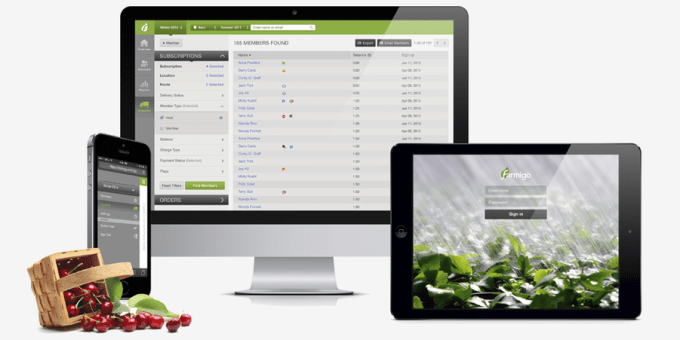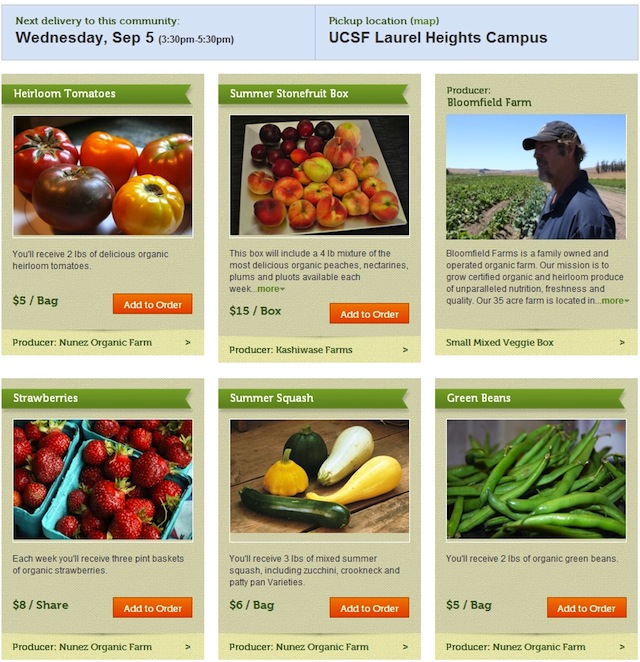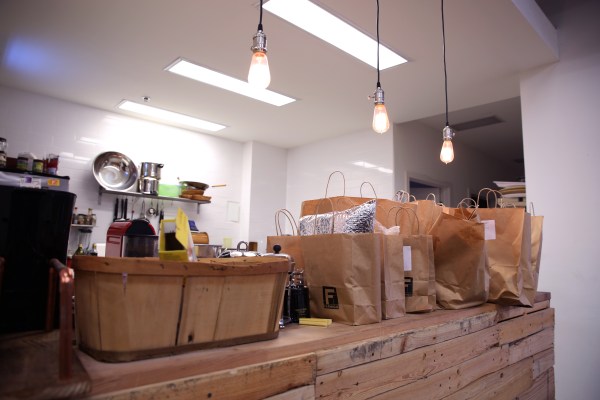Farmigo, an online farmer’s market that allowed consumers to shop for locally grown food via the web, then pick up those orders at nearby locations, says it will now be shutting down its delivery service. According to an announcement penned by Farmigo founder and CEO Benzi Ronen on the startup’s homepage, the company can no longer continue its community delivery operations sustainably. Going forward, the startup will focus on its CSA Software Management platform instead.
A TechCrunch Disrupt Battlefield finalist back in 2012, Farmigo was founded with the mission of making access to locally grown food more accessible.
Traditionally, customers who wanted to buy from local vendors and growers would have to visit their area’s farmer’s market on a weekend – an operation that’s typically open only for a few hours, and isn’t always convenient to get to. Farmigo instead brought the area farms and their inventory online, so consumers could shop at any time. Their orders were then made available at a designated pickup location.
This service was operating in New York, New Jersey, Northern California, and the Seattle-Tacoma area.
In September, Farmigo raised $16 million in Series B funding, claiming that its model could work where others failed because of its technology. Ronen said at the time that Farmigo’s end-to-end ERP system allowed it to track farmers’ inventory in order to track exactly what had been pre-ordered and packed. Drivers used that same system at the pickup site when managing customer orders.
To date, the company had raised $26 million, according to CrunchBase. With the shutdown of delivery, Farmigo has laid off a good bit of staff, including full-time employees and contractors, but it declined to provide details on headcount. However, we’re told it still has enough funding to continue for the time being without need for further fundraising.

With the delivery shutdown, the company is returning to its roots: it had originally built software for farmers, and this will again be the focus. Farmigo says it will reinvest its remaining resources into its CSA Software Management platform, which is today used by 400 farms across 40 states, and extend it to connect farmers with additional sales channels, including farms wishing to sell to restaurants, for example. It currently charges 2 percent of transactions (or a $150 minimum per month), but as the software expands, that model may change.
Designed for those in the Community Supported Agriculture (CSA) space, the software offers an alternative to paper forms and other traditional office software by helping farmers update member accounts, track sales, run reports, customize member emails, take payments, and more.
In speaking with Ronen today about the delivery shutdown, he explained that decision to pare down the focus to the software side had to do with recognizing Farmigo’s strengths, as well as where it fell short.
“It came down to whether we wanted to be a vertically integrated company that took on all responsibilities for all logistics, all software…at the end of the day, we thought that was too much to take on as one company,” he says. “Our expertise is in software, not in logistics.”
To continue on its same path, Farmigo would have needed to continually raise funding, which is not what it wanted to do, Ronen noted.

Farmigo is now discussing partnership opportunities with other, like-minded companies in the farm-to-table space whose expertise is in logistics. The hope is that it could reopen its delivery business with a partner’s help.
Today, July 13th, is Farmigo’s last delivery day. Going forward, delivery customers can check out these lists for their area – Seattle-Tacoma, Greater New York, and Bay Area – in order to stay connected to their favorite producers.
The shutdown comes at a time when some farm-to-table delivery startups have been struggling. Good Eggs laid off staff and shut down operations outside of San Francisco, then brought in a new CEO in December. GrubMarket also pulled back from all markets outside San Francisco last year.
Unfortunately for consumers, this means the problem of easy access to fresh, local food is still a challenge.
“The industry is not where it needs to be – there’s definitely need for better food systems,” says Ronen. “A lot of different companies and entrepreneurs are trying to figure this out, and no one has figured it out to date. We think we got some pieces right, but clearly many pieces we didn’t get right,” he adds. “I think only by real collaboration between the companies and partnerships will we be able to figure this out.”
